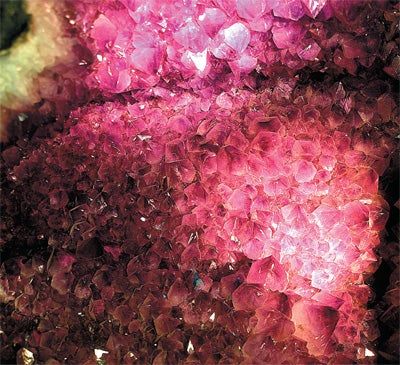Mining engineer
Highly trained engineers are required for a sustainable mining industry

The demand for minerals will grow and grow with the world's population set to double over the next 40 years, but mineral development and production must be managed in a responsible manner if we are to obtain these minerals without great damage to our environment. That's where mining comes in, using many different branches of science and engineering to understand how minerals can be won from the earth in the best possible way. This means that highly trained engineers and scientists are needed by the minerals industry now and in the future.
WHAT IS MINING ENGINEERING?
Mining engineers are responsible for the economic production of the earth's minerals. They work with metal ores, diamonds, coal, and oil, as well as industrial minerals such as clays, granites and limestone. Many mines involve deep excavations at high temperatures and large stresses in the rock. Others involve surface work in quarries, open pits and strip mines.
Mining engineers must be able to understand the nature of the rocks they work with, applying sound engineering principles to design safe methods of extraction. Knowledge of geology, engineering, rock mechanics, economics, surveying and management are all necessary for anyone involved in the design and management of mines.
As minerals in the earth's surface become harder to find - and hence more valuable - methods of extraction will become more complex. The mining industry could develop new ways of getting minerals from recycled or reclaimed raw materials, such as industrial waste or contaminated land. The invention of such a process would be revolutionary for the way the world recycles.
WHAT WOULD I STUDY?
There are some mining engineering courses in the UK at present, while many students enter the industry via a geology degree; both require at least three A-levels. First-year programmes in mining engineering are mainly devoted to general engineering principles, together with geology and surveying and an introduction to mining and mineral engineering. Courses generally include experience of a mine and some give students the chance to learn to use mining equipment and explosives safely.
Students are encouraged to do work placements during their holidays. Placements for more advanced students are often done in foreign countries. Getting real experience in industry practices, such as surface and underground surveying, is very useful.
During the second year, more emphasis is placed on mining and management, while the engineering and geology topics learnt during the first year are developed further. Third-year subjects include mine design, geotechnical engineering, mining geology and mineral management. Assessment throughout mining engineering courses varies between coursework, essays, practical write-ups and surveying presentations, as well as end-of-programme projects.
Joe Carr, who graduated from a mining engineering degree and has gone on to do a Masters, says he was expecting mining to be more hands on: he was surprised to see how much of an engineer's day was spent sat at a computer.
"It took me a while to decide if mining engineering was for me," he says. "But I enjoyed the fact the subject was so specialised. The global employment, handsome salaries and extremely interesting work helped too."
Carr knows what he's talking about when it comes to global employment. He worked in the UK and United States during his degree course, as well as spending time in Zambia just after graduation. He now has a scholarship with Rio Tinto, the second largest mining company in the world, and is studying in Finland.
WHERE WOULD I BE EMPLOYED?
"Mining engineers are sought after the world over, both in the extractive industries and in exploration, tunnelling and civil engineering," says Andy Wetherelt, programme leader in mining engineering at Exeter University's Camborne School of Mines. On completion of a mining engineering or minerals engineering degree, a high proportion of graduates enter employment related to their studies in the minerals industry, either in the UK or overseas. Having said that, graduates can also be found working in fields as diverse as sales and marketing and operations management for major UK minerals providers. Alternatively, some graduates opt to continue their training by undertaking taught postgraduate Masters courses in geotechnical engineering and computing, or work towards research degrees or a PhD.
Patrick Foster is a senior lecturer in mining engineering at the University of Exeter, www.exeter.ac.uk/csm
Join our commenting forum
Join thought-provoking conversations, follow other Independent readers and see their replies
Comments